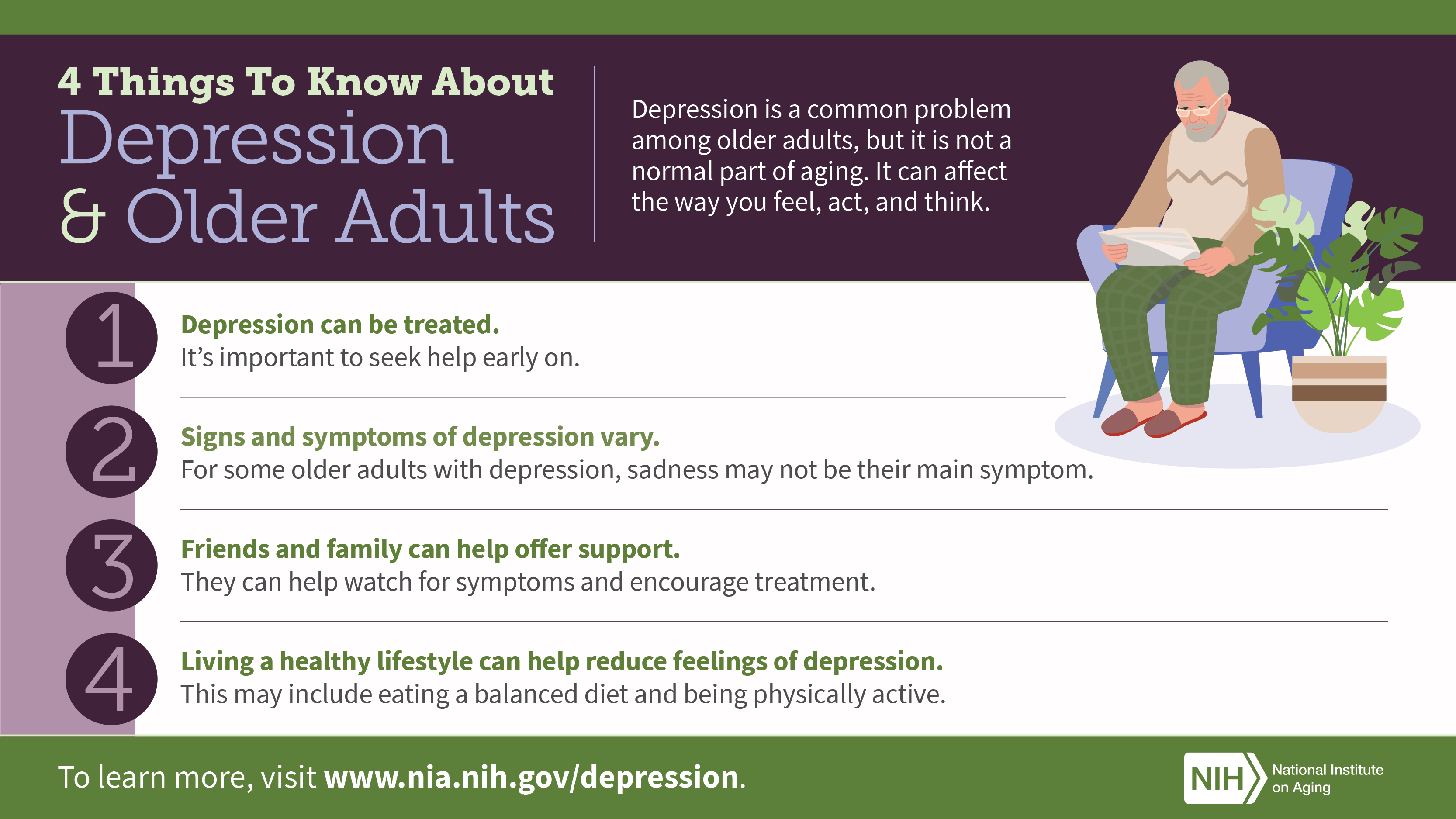4 Things To Know About Depression and Older Adults
Depression is more than just feeling sad or blue. It’s a serious mood disorder that affects many older adults and requires treatment. Find four things to know about depression below.
To share the image, right-click on it and select "save image as" to save the file to your computer. We encourage you to use the hashtag #NIAHealth in your social media posts to connect with people and organizations with similar goals.

Get Immediate Help
If you are thinking about harming yourself, tell someone who can help immediately.
- Do not isolate yourself.
- Call a trusted family member or friend.
- Call 988 or go to a hospital emergency room to get immediate help.
- Make an appointment with your doctor.
Call or text the 24-hour 988 Suicide & Crisis Lifeline at 988 or 800-273-TALK (800-273-8255). For TTY, use your preferred relay service or dial 711 then 988.
You may also be interested in
- Reading more about depression and older adults
- Finding tips for staying connected with loved ones
- Ordering or downloading a free handout on depression and older adults


